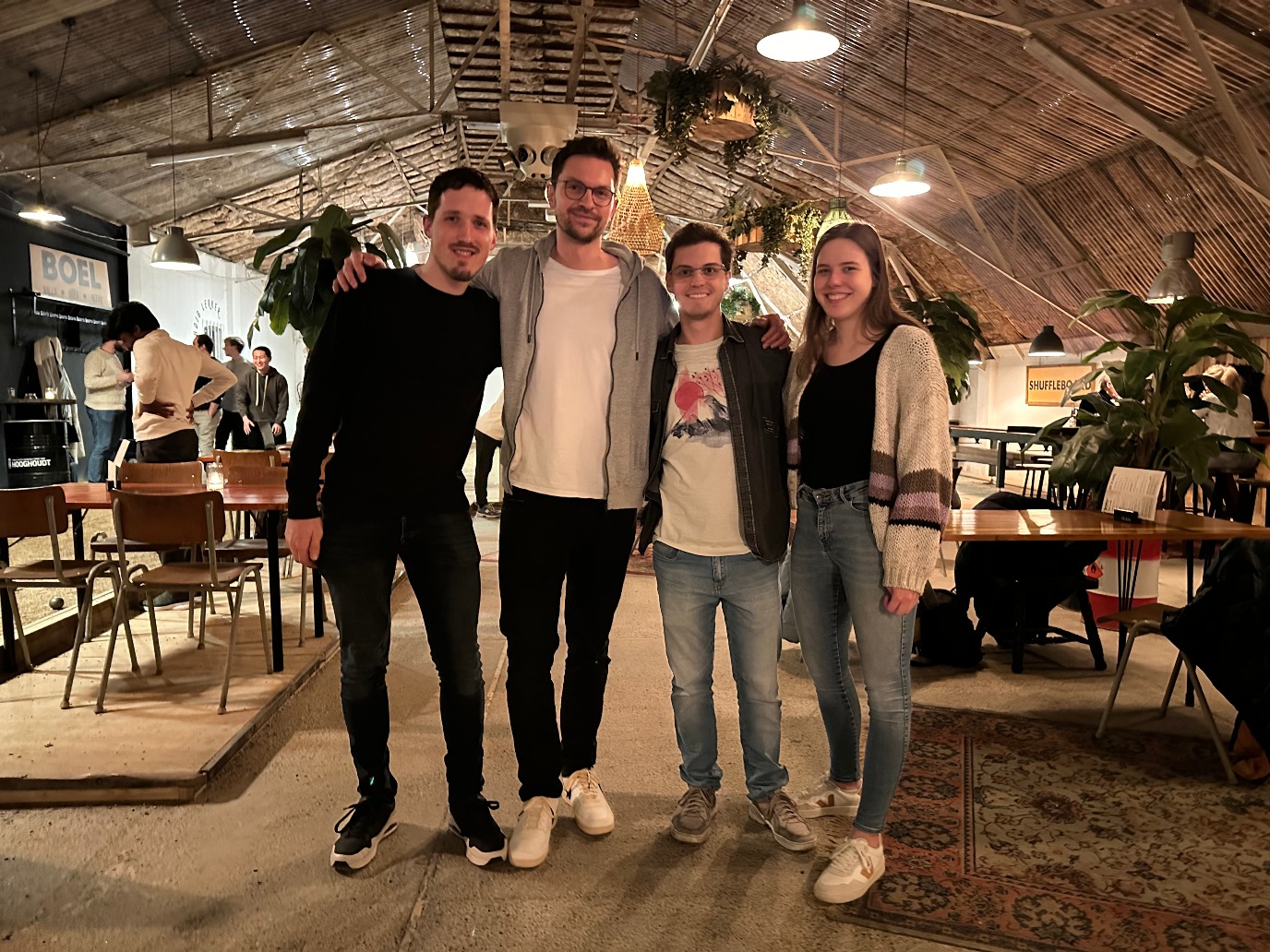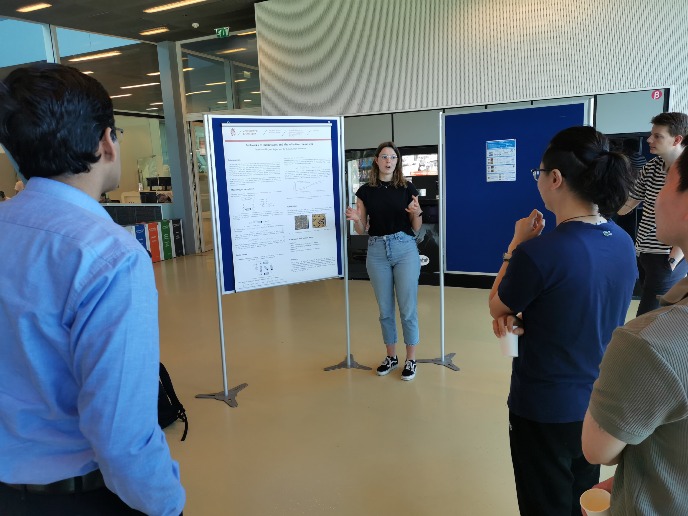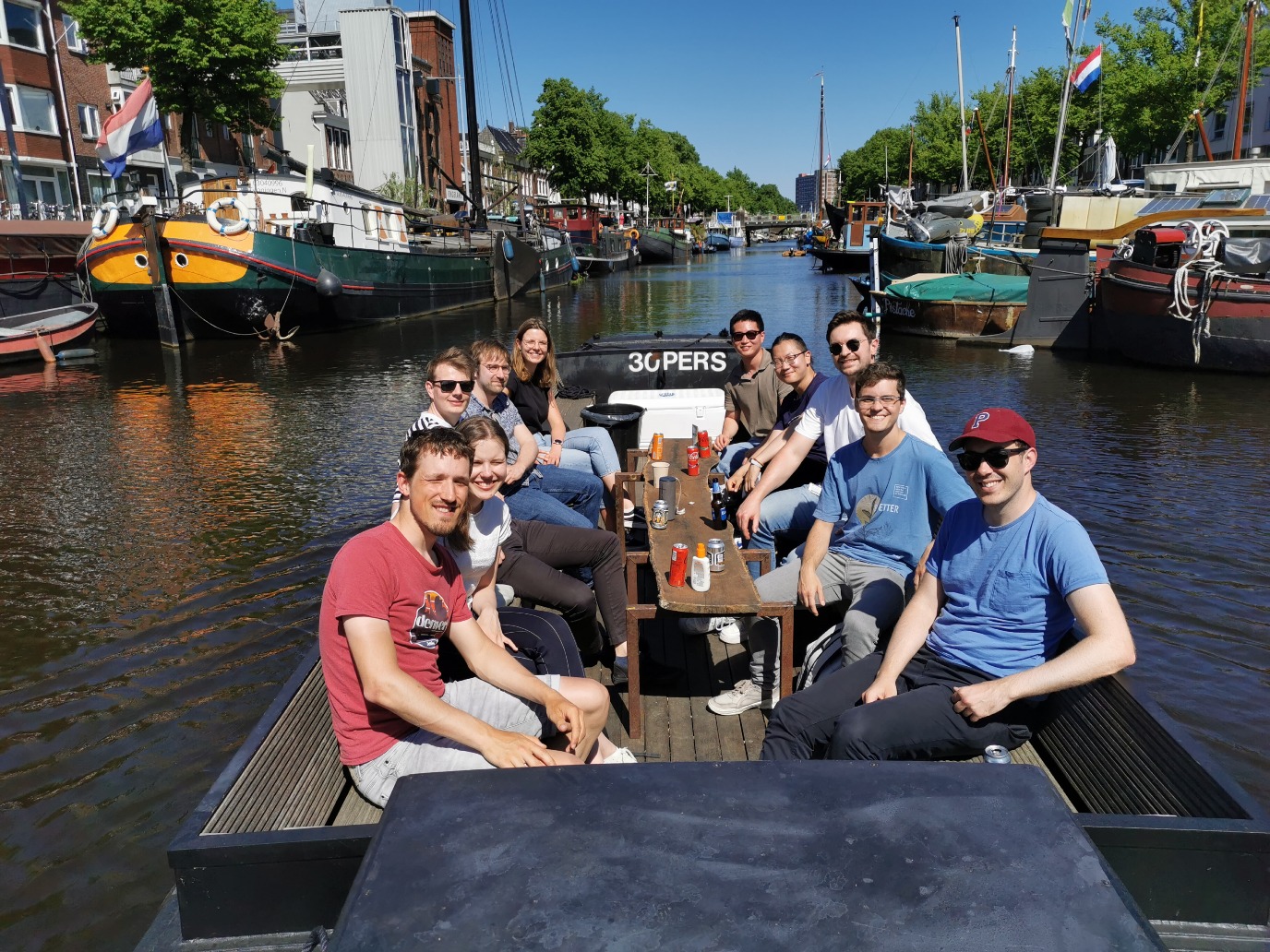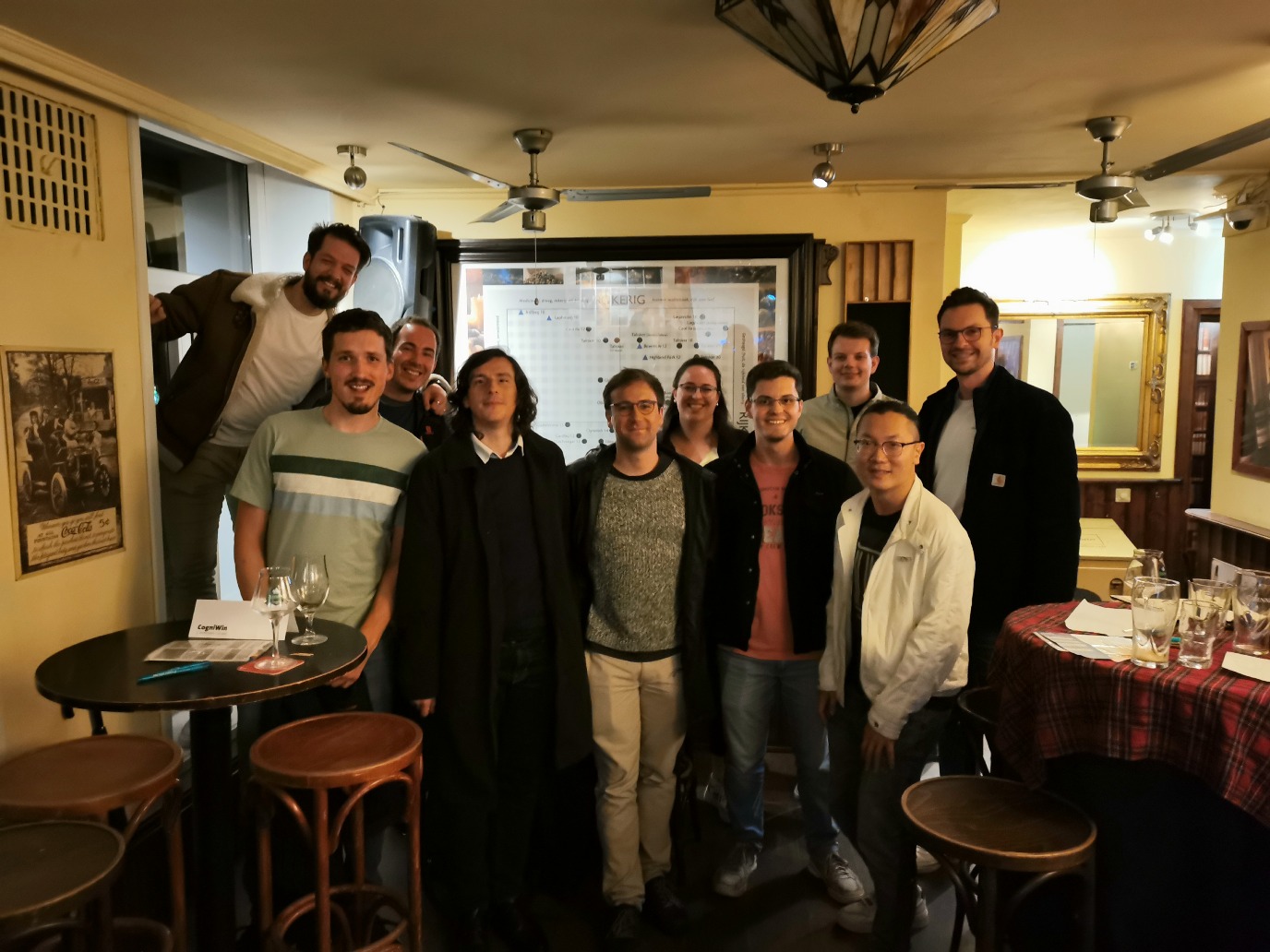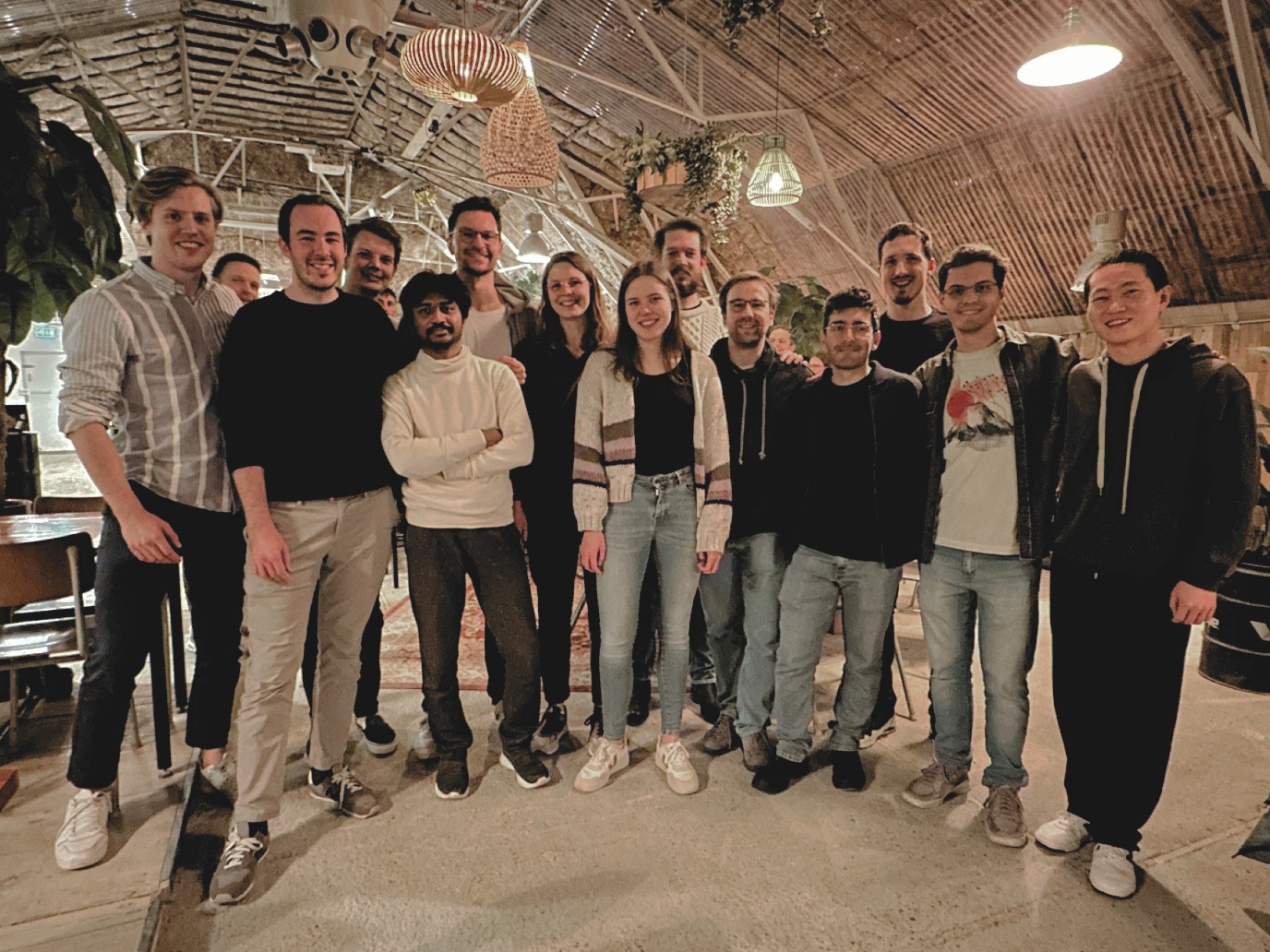Young scientists
Talent Network
Ever wondered where to find young, talented scientists in neuromorphic computing? Look no further. The CogniGron Talent Network is where early career researchers come together to face the computing challenges of tomorrow.

Advancing brain-inspired computing
Stimulating scientific exchange is key to CogniGron. Only by looking outside one's own discipline, we are able to advance in brain-inspired computing. Therefore, the CogniGron Talent Network encourages young scientists to develop a multidisciplinary research perspective early on in their careers.
The network serves as both a platform and community for various backgrounds and contexts to meet. Improving onboarding through events, the talent network connects numerous PhD students in science and computing at the University of Groningen, while reaching out to other universities and organisations too.
Meet the Talent Network Board
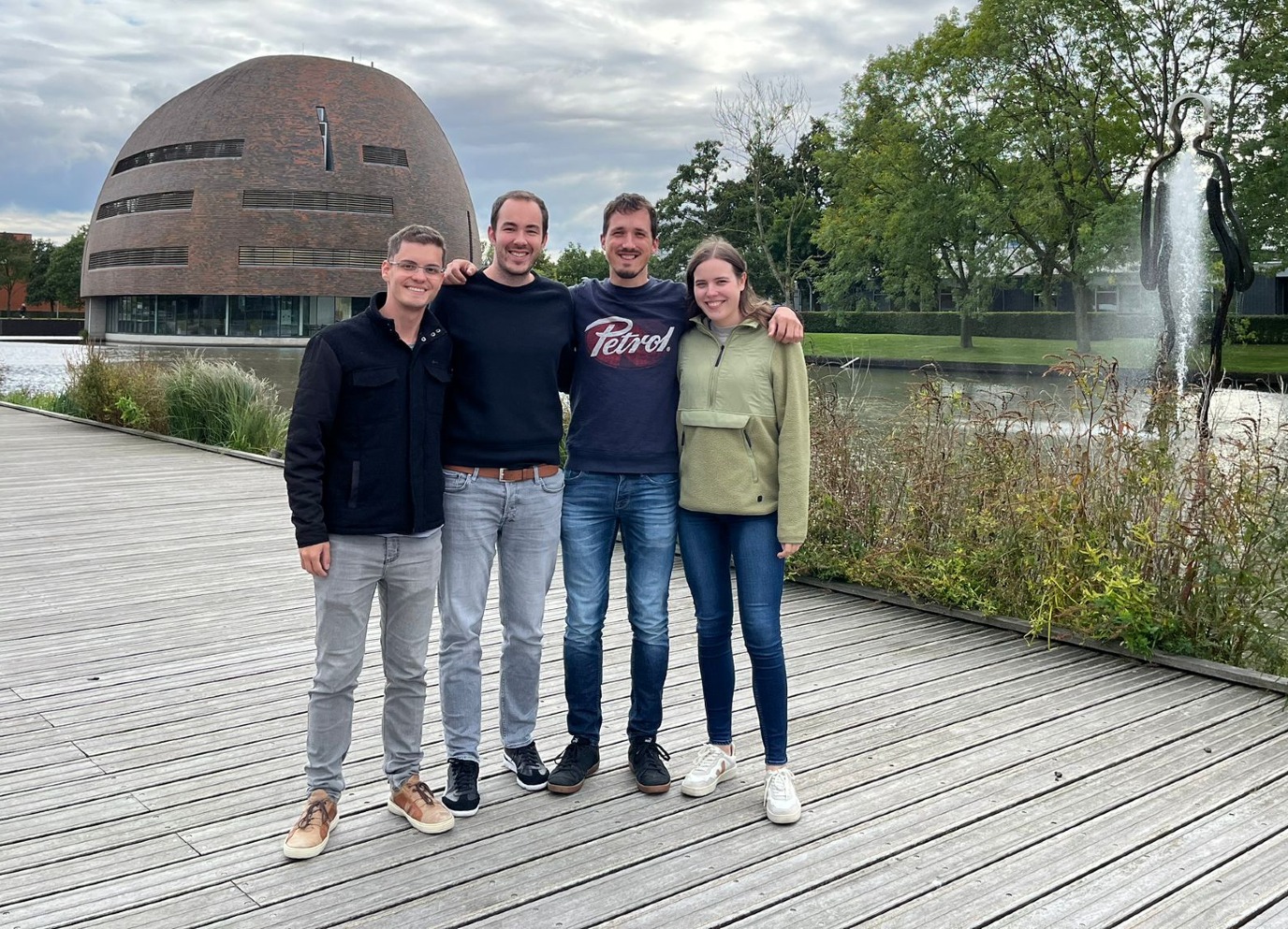
Current Board
Otavio Citton
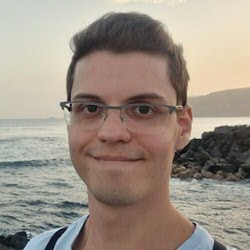
Hello, I am Otavio Citton, originally from Brazil, passionate about everything science related!
I studied physics at the University of São Paulo, where I also did my Master in theoretical physics focused on statistical mechanics.
My research interests lie in the realm of complex systems such as computer algorithms, the brain, biological systems and even societies. I believe that physics can be a powerful tool to better understand these problems, especially statistical mechanics and dynamical systems.
I moved to the Netherlands in 2023 to start my Ph.D. under the supervision of Prof. Michael Biehl of the Intelligent Systems group. My research is focused on the application of statistical physics techniques to analyse neural networks in a project funded by CogniGron.
In my opinion, CogniGron created the perfect environment for me to explore my research interests, since its main feature is the collaboration between scientists from different areas with different backgrounds. With the creation of the Talent Network, the connection with the other PhDs became even deeper, since now we have a platform to get together — not only professionally, but also on a personal level, something that I think is of fundamental importance for a healthy functional team.
Jordi Timmermans
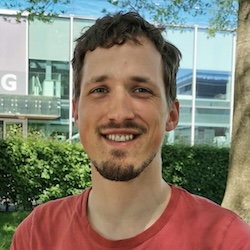
Hi, I am Jordi. Having studied in both Eindhoven and Groningen, my current research interests lie in neuromorphic computing in system control, and my current research is on a neuromuscular-inspired model that can be applied in neuromorphic computing. I am part of the research group Cognitive Modeling.
I think the CogniGron Talent Network can connect young researchers interested in neuromorphic computing from different fields. First focusing on connections within the University of Groningen and the Netherlands, and later with the rest of the world.
I would like to help build the framework (on-boarding tools and communication tools) that will provide the young researchers with connections within the RUG. And I would like to initialise communication between the Talent Network and other organisations within the Netherlands.
Martin Sarott
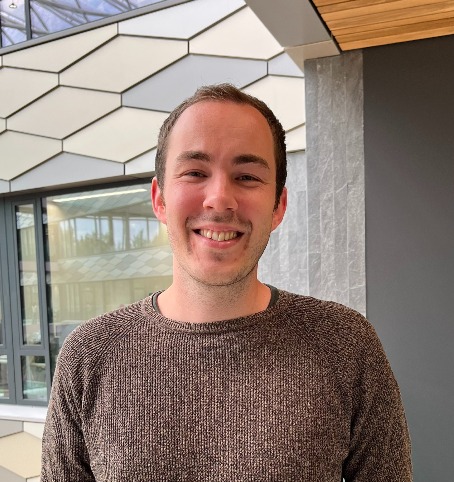
Hi there! My name is Martin Sarott, I'm from Switzerland, and I work as a postdoctoral researcher in the Solid State Materials for Electronics Group led by Prof. Beatriz Noheda.
I performed all my studies at ETH Zürich in Switzerland, where I completed my Bachelor's, Master's, and PhD degree in Materials Science.
As an experimental material scientist, my main interest lies in the study of thin-film ferroic oxides. I am particularly intrigued by the possibility to design entirely new functional properties in oxides by exploiting size effects in the ultrathin regime and by interfacing different materials with atomic-scale precision.
In my current research, I aim to mimic the non-volatile memory capacity of biological synapses and the volatile spiking behaviour of neurons using ferroelectric thin films. Ferroelectric materials exhibit a spontaneous electric polarization that can be switched with an electric field and, thus, provide an ideal playground to develop next-generation energy-efficient electronic components.
The way CogniGron unites researchers across different disciplines within a common mission to develop energy-efficient cognitive computing paradigms is unique. For this ambitious mission to be successful, it is crucial to establish a common language and enable frequent interactions between these different groups. I see the CogniGron Talent Network as a crucial puzzle piece that regularly connects early stage researchers and helps them understand each other's vocabulary from the very get-go. This will allow them to identify common challenges and tackle them in the most efficient way.
Safiere Kuijpers
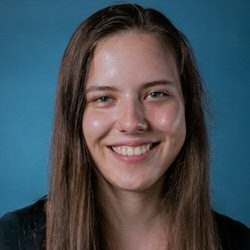
Hello, I am Safiere Kuijpers, a PhD student in Computational and Numerical Mathematics. I obtained both my bachelor's and master's degrees at Radboud University Nijmegen.
The thing that sparks the most joy in me when doing mathematics is modeling. I like to work with real-world scenarios and look for the correspondence between mathematics and reality.
A component of neuromorphic chips that will probably become very important is the memristor. This is a resistor that changes resistance when current flows through it. The topic of my research is related to interface-type memristors. These are random in the sense that if one repeats the same experiment, the results would not necessarily be the same. The goal is to quantify the uncertainty in these interface-type memristors and to use that to speed up the design cycle of memristors.
PhDs working for CogniGron are spread out over the Zernike campus and work in different research groups. This means that we don't meet each other very often. Since we are all working towards the same end goal, it is useful to get to know each other and collaborate more. The CogniGron Talent Network tries to connect PhD students and postdocs working for CogniGron on an informal level by organising social activities as well as introductory lectures, where we introduce each other to the basics of our own fields. In this way, we can create a stronger network and a common language to work on the future of neuromorphic computing.
Board Alumni
Jan Rieck
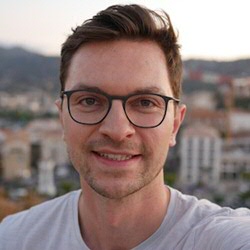
Jan Rieck got promoted in 2024!
My name is Jan Rieck, a 5th year PhD student in the Solid State Materials for Electronics group led by Beatriz Noheda.
I completed the Physics BA and MA programme at the RWTH Aachen in Germany, close to the Dutch border. I would call myself an experimental solid state physicist who is especially interested in using ferroic materials and their domain walls for neuromorphic applications. We are trying to turn the ferroelectric and ferroelastic domain wall network in a bismuth ferrite (BiFeO3) thin film into a brain-inspired processor.
My aim is to strengthen the connections between young researchers within CogniGron, both in a scientific and social way, because only then we get the most benefit from this unique and interdisciplinary community.
As a 'senior' PhD who has been with CogniGron for more than 4 years, I have a good overview about CogniGron's different research directions, groups and people. We, the CogniGron Talent Network Board, want to achieve this by organising scientific events such as lecture series, industrial events or poster sessions in combination with social activities to break barriers between people from different groups and research disciplines.
Events
From social networking events to meet-ups with the industry and discussions with peers and senior researchers — all events are aimed at supporting young scientists advance their careers and build bridges across different disciplines.
Currently, there are two recurring events:
-
Introductory Lecture Series, every second Wednesday of the month, where the basics of each field is taught by PhD's and postdocs of the respective fields (PhDs can receive credits for attending and presenting).
-
Bimonthly Event, which includes social events, scientific events and industry related events, typically outside the campus. These events are a great way to integrate the young researchers into the CogniGron community, and to stimulate interdisciplinary research.
Postdoctoral Researchers and PhD Students
The CogniGron Talent Network connects PhD students and postdocs working for CogniGron. The first list below contains an overview of all current PhD and postdoctoral researchers, along with their research projects. The second list contains our alumni.
Postdocs and PhDs
Tangwei Cao (2025-2030)
Neuromorphic control for mobile robots
Discrete Technology and Production Automation (PIs: Ming Cao / Hildeberto Jardón Kojakhmetov)
Milad Jabri (2025-2029)
Flexible piezoelectric touch sensor for bio-inspired neuromorphic systems
Discrete Technology and Production Automation group (PI: Mónica Acuautla Meneses)
Federico Loi (2025-2029)
Bio-inspired neuromorphic touch-sensing system: integrating piezoelectric-based flexible sensors with neuromorphic circuit architectures to develop energy-efficient tactile sensory systems for robotics and prosthetics
Bio-Inspired Circuits and Systems group (PI: Elisabetta Chicca)
Renzo Barraza Altamirano (2025-2029)
Memristive Time Difference Encoder: characterization and integration of memristors in a CMOS chip
Bio-Inspired Circuits and Systems group (PI: Elisabetta Chicca)
Yuehai Chen (2025-2029)
FPGA-Based Computing System Design
Computer Architecture (PI: Farhad Merchant)
Lingyu Gong (2025-2029)
Privacy-Preserving Computer Architectures
Computer Architecture (PI: Farhad Merchant)
Leah Dijkshoorn (2024-2028)
Artificial Intelligence and Mathematics for Cognitive Devices
Stochastic Studies and Statistics group (PI: Marco Grzegorczyk)
Albert Silvans (2024-2028)
Physics and Statistics for Cognitive Devices
Stochastic Studies and Statistics group (PI: Marco Grzegorczyk)
Himanshu Rai (2024-2028)
Memristive models for faster material design cycles towards applications
Spintronics of Functional Materials group (PI: Tamalika Banerjee)
Ram Eshwar Kaundinya (2024-2028)
Cognitive Architectures for Touch Based Applications
Cognitive Modeling group (PIs: Niels Taatgen / Jelmer Borst)
Yiming Zhang (2024-2028)
Low Power Probabilistic-bits Enabled Reckoning (LOPPER Project)
Innovative Computer Architecture (PIs: Tamalika Banerjee/Georgi Gaydadjiev)
Pablo Sorrentino (2024-2028)
Security and Privacy in Neuromorphic Computing Device: Opportunities and Challenges
Information Systems Group (PIs: Fatih Turkmen/ Tamalika Banjeree)
Henrieke Krijgsheld (2024-2028)
Mathematical Methods of Neuromorphic Computing and Control
Dynamical Systems, Geometry & Mathematical Physics group (PIs: Hildeberto Jardon /Ming Cao)
Hitesh Chhabra (2024-2028)
Spin and Charge Based Oscillators for Tactile Internet
Spintronics of Functional Materials group (PIs: Tamalika Banerjee/ Elisabetta Chicca)
Horatio Cox (2024-2028)
Crystalline Oxides For Next Generation Compution and Emerging Photonic Technologies (CONCEPT project)
Solid State Materials for Electronics group (PI: Beatriz Noheda)
Giuseppe Leo (2024-2028)
Stochastic Spiking Wireless Multimodal Sensory Systems (SWIMS)
Bio-Inspired Circuits and Systems group (PI: Elisabetta Chicca)
Bojian Zhang (2024-2028)
Development, modelling, and characterisation of RRAM-based circuits for analog computing
NeuroPrivate Project: Privacy Preserving Architecture using Novel Cognitive ReRAM Devices
Bio-Inspired Circuits and Systems group (PI: Erika Covi) and Computer Architecture (PI: Farhad Merchant)
Davide Maioli (2024-2028)
Neuromorphic High Level Information Processing
Cognitive Modeling group (PI: Matthew Cook)
Memoona Ismael (2024-2028)
Edge of stability for enhanced memristive functionality – This project has received funding from the European Union’s Horizon 2020 research and innovation programme (under Marie Skłodowska-Curie grant agreement No 101119608). Part of TOPOCOM.
Solid State Materials for Electronics group (PI: Beatriz Noheda)
Dr. Martin Sarott (2024–2028)
Ferroelectric devices for brain-inspired computing - This project has received funding from the Horizon Europe programme CONCEPT under the Grant Agreement 101135946
Solid State Materials for Electronics (PI: Beatiz Noheda)
Haoran Yu (2024–2028)
Ferroelectric memristors for energy-efficient computing
Solid State Materials for Electronics (PI: Beatiz Noheda)
Ishitro Bhaduri (2023-2027)
Low power probabilistic-bits enabled reckoning
Spintronics of Functional Materials group (PI: Tamalika Banerjee)
Otavio Citton (2023-2027)
Statistical physics of learning in layered systems of adaptive elements
Intelligent Systems Group (PI: Michael Biehl)
Safiere Kuijpers (2023-2027)
Memristive models for faster material design cycles towards applications
Computational & Numerical Mathematics group (PI: Julian Koellermeier)
Peter van der Wal (2023–2027)
Robust learning of sparse representations: brain-inspired inhibition and statistical physics analysis
Information Systems group (PI: George Azzopardi)
Jingtian Zhao (2023–2027)
Ferroelectric memristive devices – This project has received funding from the Chinese Scholarship Council (CSC)
Solid State Materials for Electronics (PI: Beatiz Noheda)
Dr. Alejandro Pequeño Zurro (2023–2027)
Tactile Internet: remote sensing with neuromorphic technology – This project has received funding from the Dutch NWA Project NL-ECO.
Bio-inspired Circuits and Systems (PI: Elisabetta Chicca)
Fernando Quintana (2024-2026)
Floor Schipper (2024-2026)
The Geometry of Coupled Neurons towards Analog Computing
Dynamical Systems, Geometry & Mathematical Physics group (PI: Hildeberto Jardon /Ming Cao)
Foelke Janssen (2022-2026)
Qualitative modeling, simulation and exploration of multi-phenomenal materials dynamics (Q-Mat)
Solid State Materials for Electronics group (PI: Beatriz Noheda)
Ton Juny Pina (2022-2026)
Neuromorphic odor classification
Bio-inspired systems and circuits group (PI: Elisabetta Chicca)
Radu Cimpean (2022-2026)
The development of ordinary differential equation (ODE) theory and computational models for sense of smell
Systems Control and Applied Analysis group (PIs: Alden Waters & Stephan Trenn)
Fabian IJpelaar (2022-2026)
Qualitative modeling, simulation and exploration of multi-phenomenal materials dynamics
Computing in Cognitive Materials group (PI. Herbert Jaeger)
Paul Hansch (2022-2026)
Smart electronic olfactory system
Photophysics and Optoelectronics group (PI: M.A. Loi)
Jordi Timmermans (2022–2026)
Nb-doped SrTiO3 memristive interfaces for bio inspired computing
Artificial Intelligence group (PI. Lambert Schomaker)
Marieke Heidema (2022-2026)
Learning in memristive electrical circuits
Systems and Control Theory Research group (PI: Bart Besselink)
Luca Fehlings (2022-2026)
Integration of emerging memory devices into neuromorphic CMOS circuits
Bio-inspired Circuits and Systems group (PI: Erika Covi)
Paolo Gibertini (2022-2026)
Hybrid memristive-CMOS neuromorphic systems for edge computing
Bio-inspired Circuits and Systems group (PI: Erika Covi)
Dr. Gaurav Vats (2023–2025)
SMART: Synchronised neuro-Memristive Architecture for Reinforced learning Technology – This project has received funding from the EU’s Horizon 2020 programme SMART under the Marie Skłodowska-Curie grant agreement
Solid State Materials for Electronics (PI: Beatiz Noheda)
Jesse Luchtenveld (2021-2025)
CogniGron-IBM Fellow
Analogue phase-change memory cells for neuromorphic computing
Nanostructured Materials and Interfaces group & IBM Research-Zurich (PIs: Bart Kooi and Abu Sebastian)
Hugh Greatorex (2021-2025)
Memristive time difference encoder
Bio-inspired Circuits and Systems group (PI: Elisabetta Chicca)
Steven Abreu (2021-2025)
Computing in non-digital substrates
Computing in Cognitive Materials group (PI: Herbert Jaeger)
Maxim Fabre (2021-2025)
On-chip training on analog circuits with memristive devices and bio-plausible learning algorithms
Bio-inspired Circuits and Systems group (PI: Elisabetta Chicca)
Guillaume Pourcel (2020-2025)
Theory of neuromorphic computing – This project is funded by the EU Horizon 2020 Research and Innovation programme POSTDIGITAL under the Marie Skłodowska-Curie grant 860360.
Computing in Cognitive Materials group (PI: Herbert Jaeger)
Ruben Hamming-Green (2021-2024)
CogniGron-IBM Fellow
Combined volatile/non-volatile memristive ferroelectric arrays
Nanostructures of Functional Oxides group & IBM Research-Zurich
Lijun Chen (2021-2024)
Robust metal halide perovskites for solar cells and memristors
Photophysics and Optoelectronics group (PI: Maria Loi)
Julien van der Ree (2021-2024)
Nanoparticle based percolating networks towards neuromorphic computing
Physics – Surface interactions and Nanostructures group (PI: George Palasantzas)
Remi Brandt (2020-2024)
Neural networks with observable decisions
Innovative Computer Architectures (PI: Georgi Gaydadjiev)
Mian Li (2020-2024)
Morphological image analysis of conduction maps – This project has received funding from the EU’s Horizon 2020 programme MANIC, under the Marie Skłodowska-Curie grant agreement 861153.
Scientific Visualization and Computer Graphics (PIs: Michael Wilkinson & Jos Roerdink)
Azminul Jaman (2020-2024)
Towards a cognitive computer architecture based on memristive devices: developing short- and long-term memory
Spintronics of Functional Materials group (PI. Tamalika Banerjee)
Willian Soares Girão (2020–2024)
Neuromorphic circuits for novel devices – This project has received funding from the EU’s Horizon 2020 programme MANIC under the Marie Skłodowska-Curie grant agreement 861153)
Bio-inspired Circuits and Systems (PI: Elisabetta Chicca)
CogniGron Alumni
Madison Cotteret (2021-2024, thesis defence in May 2025)
Neuromorphic memristive VLSI architectures for cognition
Bio-inspired Circuits and Systems group (PI: Elisabetta Chicca)
Jhon Kevin Astoquillca Aquilar (2021-2025, thesis defence in April 2025)
Synchronization in random networks
Stochastics and Statistics group (PI: Holger Waalkens)
Davide Cipollini (2021-2025, thesis defence in March 2025)
Adaptive random non-linear mappings for neural computing in ferroelastic films – This project is funded by the EU Horizon 2020 programme MANIC (under Marie Skłodowska-Curie grant agreement no. 861153)
Artificial Intelligence group (PI: Lambert Schomaker)
Saad Saleh (2020-2025)
New switching architectures with memristors for neuromorphic computing
Computer Networks group (PI. Boris Koldehofe)
Anne-Men Huijzer (2019-2025)
Memristor networks
Systems and Control Theory Research group (PI: Bart Besselink)
Dr. Nicoletta Risi (2022-2024)
Bio-inspired Circuits and Systems group (PI: Elisabetta Chicca)
Michele Mastella (2020-2024)
Neuromorphic embedded processing for touch – This project is funded by the EU Horizon 2020 Research and Innovation project NEUTOUCH, under grant agreement no. 813713
Bio-inspired Circuits and Systems group (PI: Elisabetta Chicca)
Ole Richter (2020-2024)
Neuromorphic integrated systems for network stability and homeostasis
Bio-inspired Circuits and Systems group (PI: Elisabetta Chicca)
Thomas Tiotto (2020-2024)
Towards a cognitive computer architecture based on memristive devices: developing short- and long-term memory
Artificial Intelligence group (PI. Niels Taatgen)
Daniel Willhalm (2020-2024)
Large deviations in stochastic geometry
Topological Data Analysis and Data Science group (PI: Tobias Muller)
Karoline Tran (2020–2024)
Carbon nanotube-based neuromorphic electronics
Photophysics and Optoelectronics group (PI. Maria A. Loi)
Philipp Klein (2020-2024)
Learning in neuromorphic systems
Bio-inspired Circuits and Systems group (PI: Elisabetta Chicca)
Jan Rieck (2019-2024)
Memristor networks from self-assembled domain walls in oxides – This project has received funding from the EU’s Horizon 2020 programme MANIC, under the Marie Skłodowska-Curie grant agreement 861153.
Solid State Materials for Electronics (PI: Beatiz Noheda)
Dr. Celestine Lawrence (2020-2023)
Theory of neuromorphic computing – This project has received funding from the EU Horizon 2020 Research and Innovation programme MEMSCALES, under grant agreement no. 871371
Computing in Cognitive Materials group (PI: Herbert Jaeger)
Mart Salverda (2018–2023)
Neuromorphic phenomena in thin film perovskite oxides
Solid State Materials for Electronics (PI: Beatiz Noheda)
Anouk Goossens (2018-2023)
Nanoscale memristors for new computing paradigms
Spintronics of Functional Materials group (PI: Tamalika Banerjee)
Sanne Berg (2018-2022, thesis defence in 2023)
Self-assembled networks of functional metal oxides for neuromorphic materials
Solid State Materials for Electronics (PI: Beatriz Noheda)
Lyes Khacef (2020-2022)
Bio-inspired Circuits and Systems group (PI: Elisabetta Chicca)
Alexander Kugele
Event‐based vision for automated driving
Bio-inspired Circuits and Systems (PI: Elisabetta Chicca)
Gallery
Get in touch
Would you like to get in touch with the CogniGron Talent Network? Please send an e-mail to: ctn rug.nl

